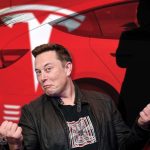Back in February, 3G-owned Kraft Heinz.Co wrote down its value of Kraft and Oscar Mayer brands by US$15.4 billion.
It’s co-founder Jorge Paulo Lemann said the company’s mistake was that it did not spend enough to sustain brands: “We bought brands and we thought they would last forever.”
As reported in the Harvard Business Review, there is an ongoing debate if firms have become complacent about marketing and sustaining their brands.

In the 1970s, there was almost no difference between R&D spend and advertising spend, but that relationship has changed a lot since.
Technology firms have shown the most dramatic change as they spend more than ten percent on expenses for R&D and less than one percent on advertising.
The fastest growing industry in the last three decades has shifted its focus away from marketing towards innovation and product development.

The top three companies in the Forbes 2018 list of most valuable brands, Apple, Alpabet (Google) and Microsoft are all putting more dollars into R&D and spending less than one percent on advertising.
The team at HBR feel that there are several explanations that could be attributed to their findings.
Firstly, firms might increasingly rely on acquired brands instead of developing them organically.
Secondly, firms might achieve higher mileage from advertising dollars through more intimate knowledge of their customers and by using improved tracking and analytics.
A perfect example is that someone who is on Facebook would definitely contribute to the success of an advertisement being viewed with greater reach and at a lower cost as well, then say a print ad in the Reader’s Digest.
Thirdly, and perhaps more importantly, brands need to have more of a laser focus on customers.

Firms are relying on peer networks, word of mouth, blogs and cross-sold services to establish their presence in the marketplace as well.
But of course, the founders of companies are more always passionate about discovering new technologies rather than exploring marketing successes.
Nonetheless, the team at HBR feel that its plausible that marketing has lost relevance to engineering, technology and product development.
This will of course have profound implications for organizational structures, manpower planning and management of education within the companies as well.
Source: Harvard Business Review
MARKETING Magazine is not responsible for the content of external sites.









